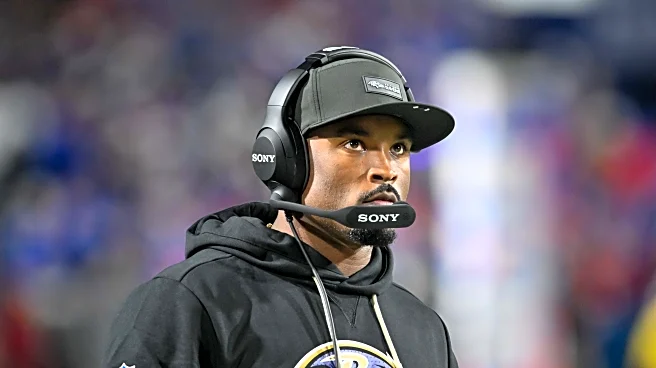What's Happening?
The government has increasingly utilized influencers and social media platforms to disseminate public information, aiming to modernize communication practices. The New Media Unit, established a year ago, has been pivotal in this strategy, with a budget
of £13.2 million dedicated to reaching audiences through digital channels. Despite the growing use of influencers, several departments have withheld details on spending and the identities of influencers involved, citing commercial sensitivities. This has led to parliamentary scrutiny, with opposition MPs questioning the transparency of these campaigns. While some departments have disclosed spending figures, others remain opaque, raising concerns about accountability and the effectiveness of these campaigns.
Why It's Important?
The shift towards using influencers for government messaging reflects a broader trend of adapting to digital media consumption patterns. This approach aims to engage demographics that traditional media may not reach effectively, such as younger audiences. However, the lack of transparency regarding costs and influencer identities raises questions about the ethical implications and potential biases in government communications. The strategy could influence public perception and trust in government initiatives, impacting policy acceptance and civic engagement. Departments that have embraced this method may benefit from increased visibility, but they also face scrutiny over the allocation of public funds and the potential for perceived manipulation of public opinion.
What's Next?
As the government continues to leverage influencers, it may face increased pressure to disclose more information about these campaigns. Stakeholders, including MPs and civil society groups, are likely to demand greater transparency and accountability. Future developments may include policy adjustments to address concerns about commercial sensitivities and ensure ethical standards in public communications. The effectiveness of influencer campaigns will be evaluated, potentially influencing future budget allocations and strategic decisions. Departments that have not yet adopted this approach may reconsider their communication strategies in light of evolving media landscapes.
Beyond the Headlines
The use of influencers in government messaging highlights a cultural shift towards digital engagement, reflecting changes in media consumption habits. This trend raises ethical questions about the role of influencers in shaping public discourse and the potential for conflicts of interest. The reliance on digital platforms also underscores the need for robust data protection measures to safeguard personal information. Long-term, this strategy could redefine government communication practices, influencing how public information is disseminated and consumed.


















